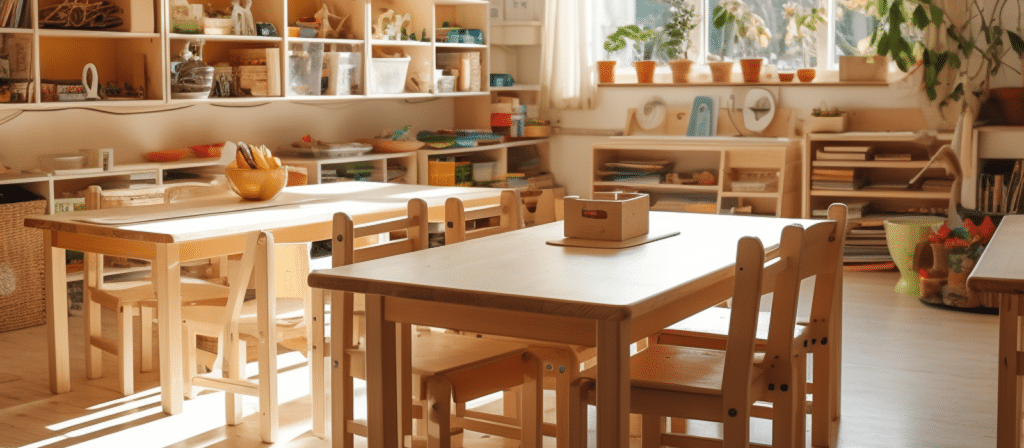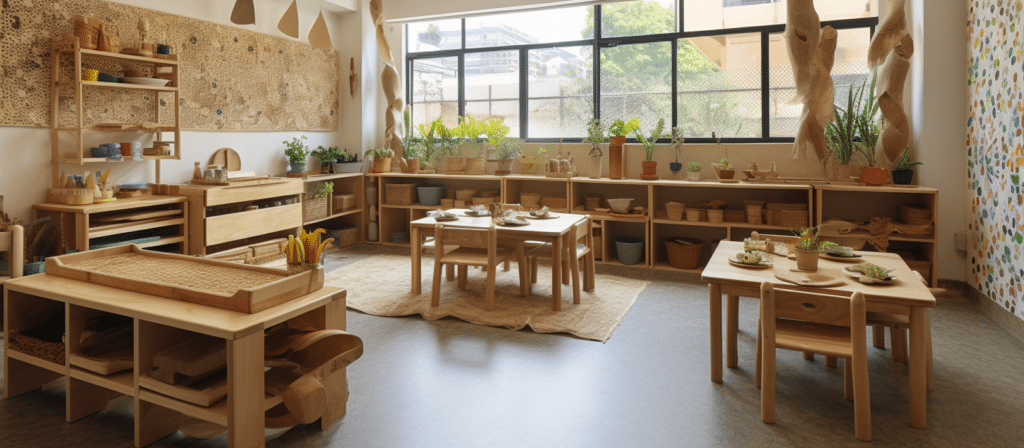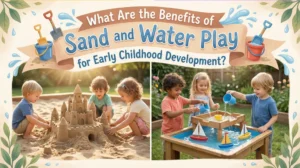As you step into a thoughtfully designed kindergarten classroom, you’ll witness a harmonious blend of young learners and educators engrossed in meaningful activities. Children are actively engaged in constructive pursuits, while teachers adeptly observe, guide, and stimulate their curious minds. This dynamic is made possible by an environment that assumes roles typically associated with educators, fostering interaction, learning, and the avoidance of aimless behaviors. In essence, the classroom environment becomes an additional mentor.
Delving into the creation of such an enriching atmosphere involves the interplay of four essential components:
- Nurturing Safety: Safeguarding the Classroom Dwellers Similar to how a teacher ensures the safety of her students, the environment’s primary role is to prioritize well-being. A well-structured environment minimizes the time teachers invest in safety measures, granting them more opportunities for impactful teaching. Clear demarcation of the number of children allowed in each area, indicated by signs or visual cues, can drastically reduce the need for constant supervision. Sturdy, well-designed furniture securely anchored to walls is crucial. Disorderliness can trigger chaos, leading to hazardous situations such as falling objects or accidents due to sharp edges.
- Cultural Alignment: Embracing User Perspectives To create a comfortable setting, it’s pivotal to consider the viewpoints of both learners and educators. Approaching the environment from a child’s perspective uncovers functional and appealing aspects. Given that children spend considerable hours in school, infusing homely touches within the environment, like cushions, curtains, and cozy baskets, fosters a comforting ambiance. Comfort directly influences productivity, and a well-crafted environment enhances the experiences of both adults and children.
- Strategic Zoning: Spaces that Foster Appropriate Activities Facilitating seamless small group interactions is a cornerstone of an effective kindergarten environment. Well-designed spaces allow for a variety of group sizes and activities. Whether it’s center time where children explore arts or construct with blocks, or larger group activities, a cohesive spatial arrangement is paramount. Organizing zones with a flow that prevents congestion and allows for easy movement is vital. Spaces should encourage engagement without promoting chaotic behaviors.
- Center Time: Each classroom area, such as the art corner or block area, should be optimized for small groups. Clearly defined centers minimize confusion, enabling teachers to focus on teaching instead of constant organization.
- Large Group Time: Dedicated space for collective activities must be easily accessible to avoid disruptions. Comfortable seating arrangements are essential, preventing distractions and fostering active participation.
- Individual Retreats: Often overlooked, individual spaces provide solitude for children to regroup. These areas strike a balance between privacy and teacher observability.
- Stimulating Setup: Curated Materials for Enhanced Learning The environment should seamlessly extend teaching beyond the teacher’s reach. By thoughtfully selecting materials, educators create an environment that encourages exploration and challenges young minds. The curriculum’s progression should involve both familiar and novel experiences. Introducing materials progressively allows children to develop understanding, observed by teachers who then guide them towards deeper learning. Maintaining an appropriate balance of materials encourages sharing and negotiation skills.
Decor and displays also play a role in the environment’s educational aspect. Instead of superficial adornments, displays should provoke learning through meaningful content and documentation. By considering aesthetics and relevance, teachers can cultivate an environment that facilitates learning even through its visual elements.

Conclusion
A kindergartener enters her environment with inherent competence and awareness. The foundation for her positive response rests on four pillars: a secure space, personalized comfort, clear activity zones, and engaging materials. As we put on the lens of a child, pondering their queries, we realize the significance of our role in crafting the learning space:
- Is this place safe? Do the materials make sense to me? Can I navigate each area confidently? Are these materials meant for play or display? Where do things belong? Can I find a cozy corner? Will my friend and I find time to connect?
The meticulous attention given to safety, cultural resonance, zoning, and materials transforms the environment into an effective educator. This shift means educators spend less time on maintenance tasks, allowing them to focus on interaction, observation, and nurturing intellectual growth.













